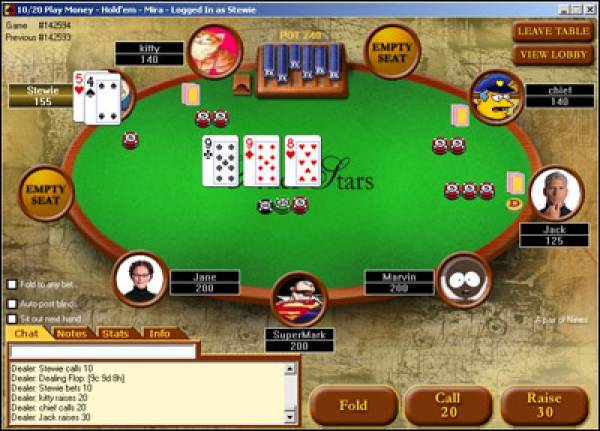Changes to ‘Time to Act’ in Ring Games at PokerStars

Changes to “Time to Act’ in ring games will occur over the coming weeks (January thru February 2013) at PokerStars.com.
Table Speeds will now be based on game format rather than potentially having “Fast” and “Normal” tables of a single game.
PokerStars made these changes with the goal of simplifying our offerings and bringing them more in line with the way people use our software.
The time you are given to act in a hand will now vary based on what stage of the hand you are involved in. If it is the first betting round, and no one has raised, you will get less time than on later betting rounds or when the pot has been raised. This should give you more time when you need it without allowing excessive time on the easiest decisions.
The new time to act values are as follows:
Here are our original time to act values for comparison:
There are two other timings that used to differ between fast and normal speed tables that will now be standardized across all tables.
Players will receive a warning that their time to act is about to expire when they have 8 seconds remaining. This timing had been set to 8 seconds at fast tables and 15 seconds at normal tables.
Players who do not automatically muck their hands will have 2 seconds at the end of each hand to decide to muck or show. This timing had been set to 1 second at fast table and 3 seconds at normal tables.
Timeline
These changes will start being implemented on Wednesday, January 16th and will be rolled out in waves over the next week.. Lobby Banners will be posted in the relevant lobbies as tables are modified.
When your client is updated this week, you will notice that you no longer have the ability to filter “Fast” and “Normal” speed tables as this distinction will no longer be present. Those who prefer not to update their client promptly will still be able to see the tables with the new time to act.
As these changes are rolled out, the newly consolidated tables will be labelled as “Fast. When the changes are completely rolled out, the “Fast” label will be removed.
PLO vs. NLHE
In earlier versions of this plan, we had discussed giving more time to act in PLO games than in NLHE games. However, we ultimately decided against this.
Although PLO players take slightly longer to act on average than NLHE players, the difference is small. PLO players are already adapting appropriately by playing significantly fewer concurrent tables on average. Additionally, a higher percentage of PLO actions are postflop, resulting in a higher average time allowed to act under the new system that will soon be implemented.









